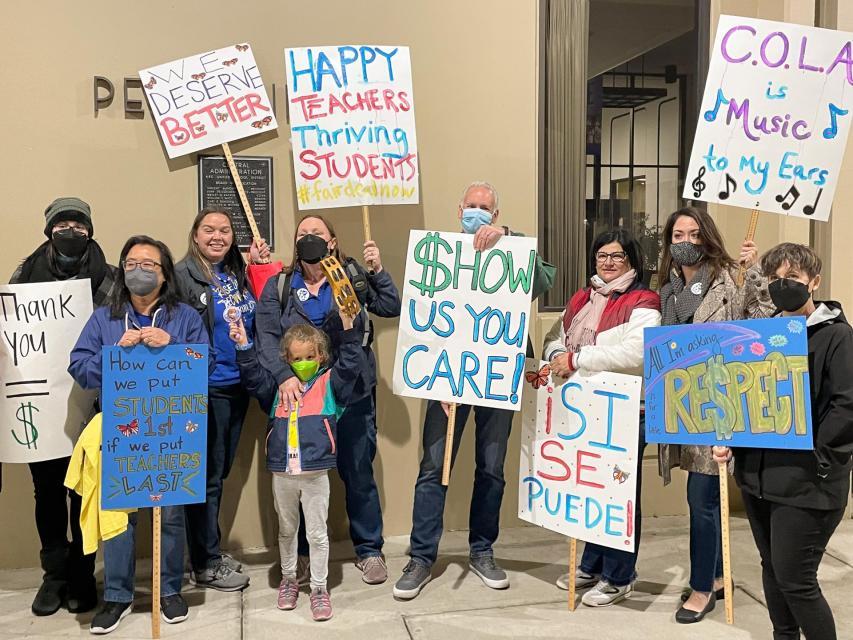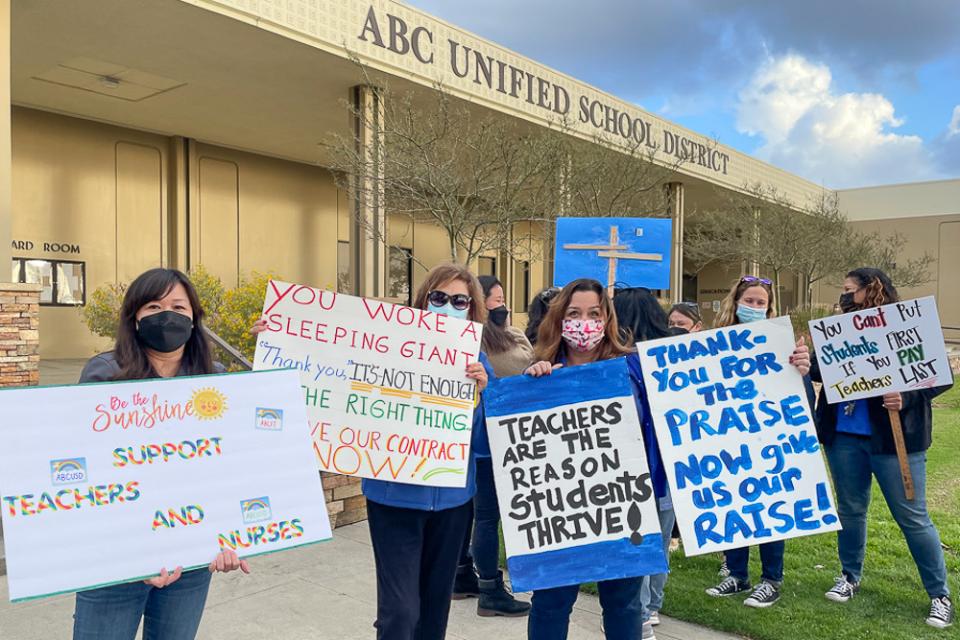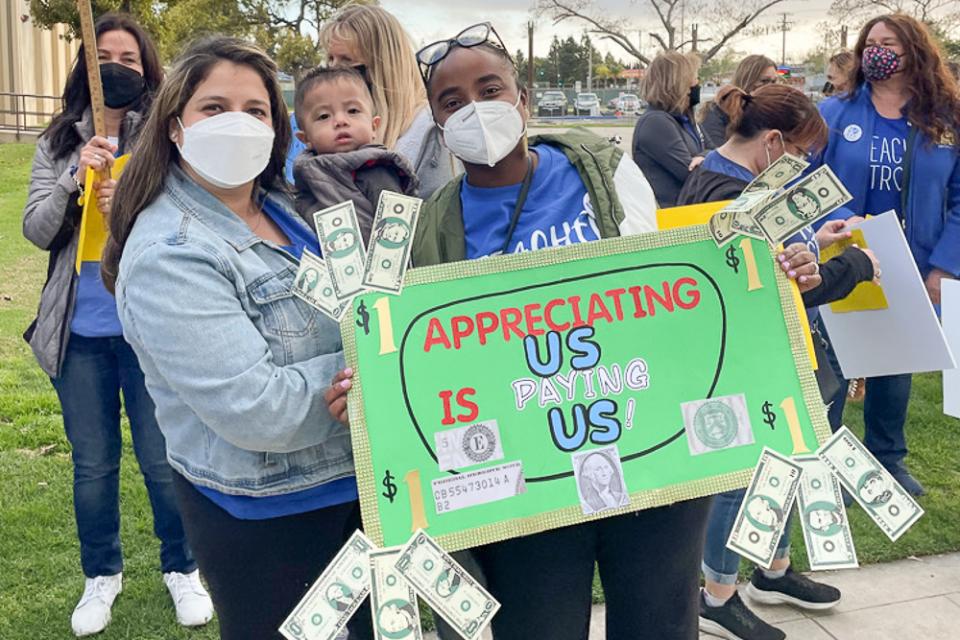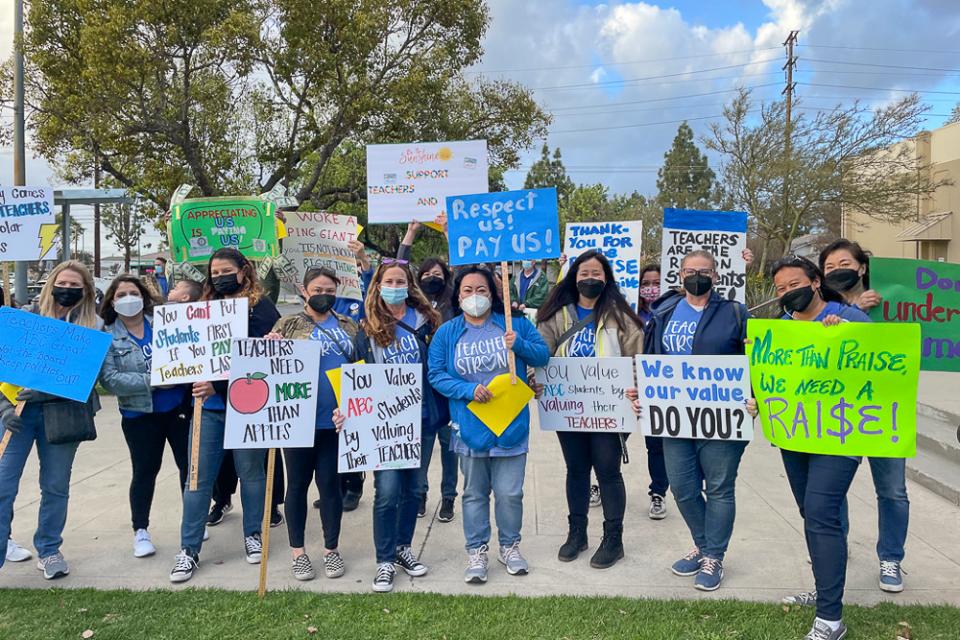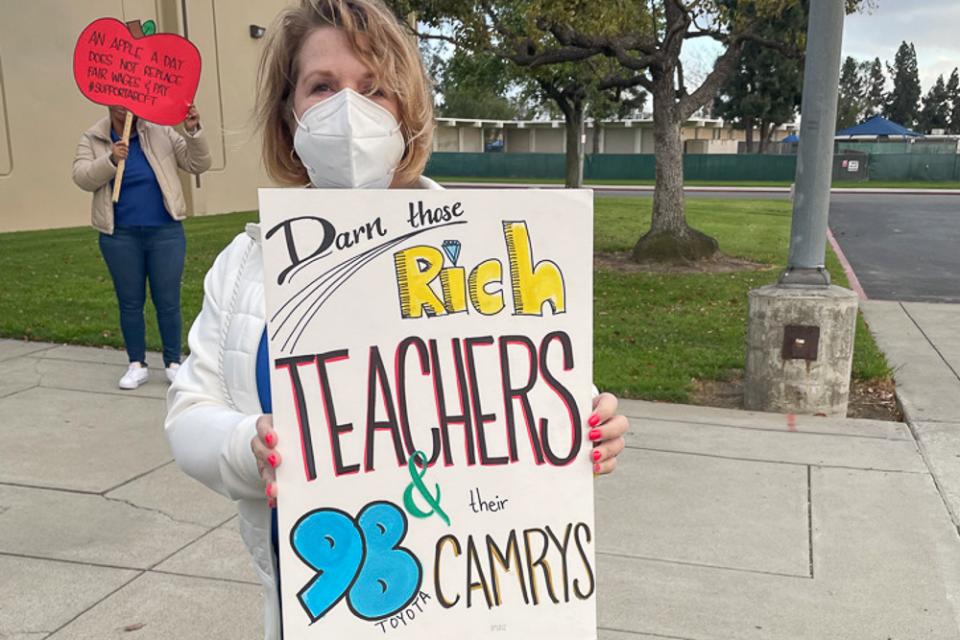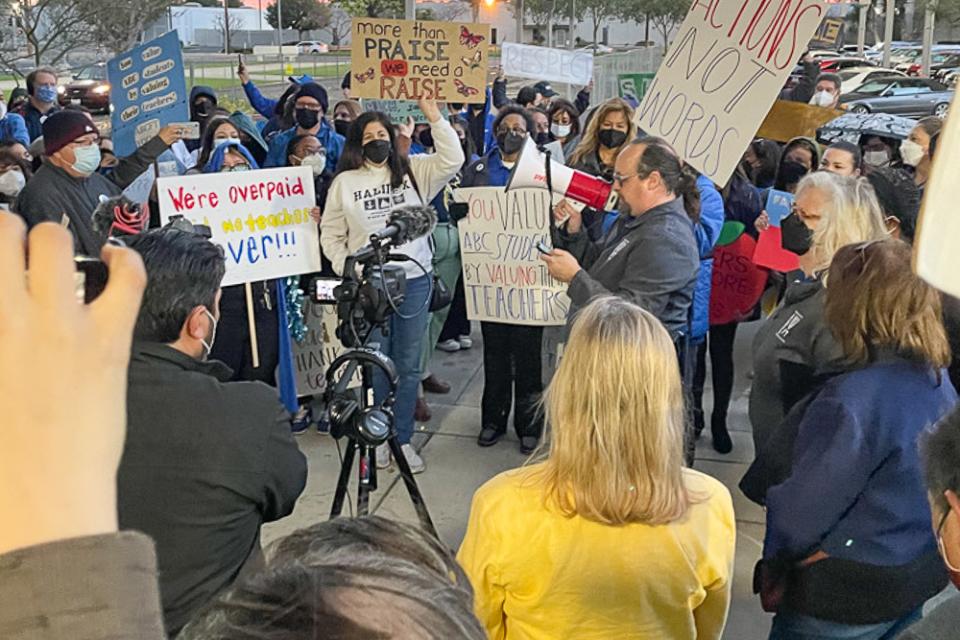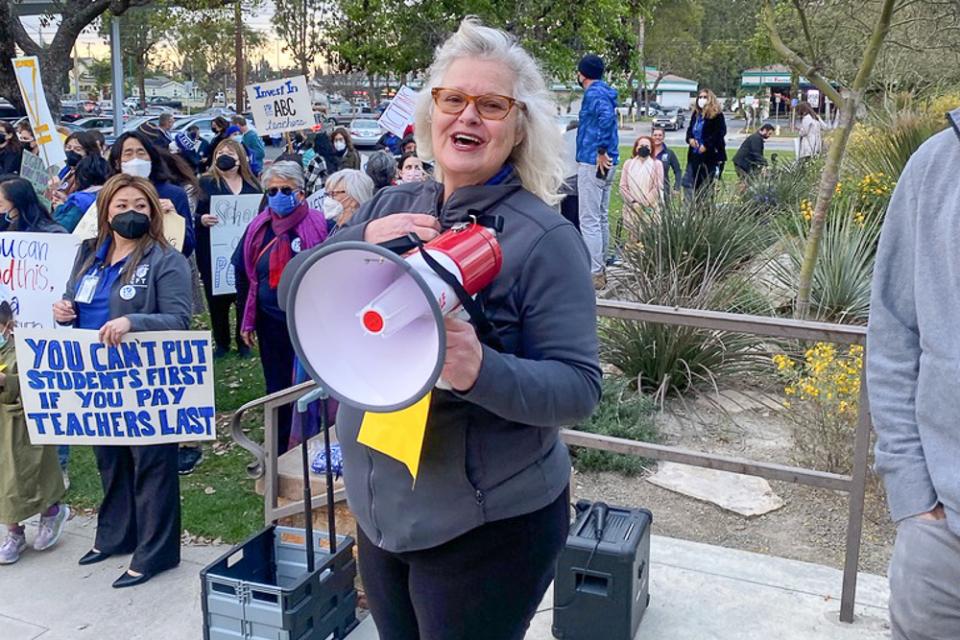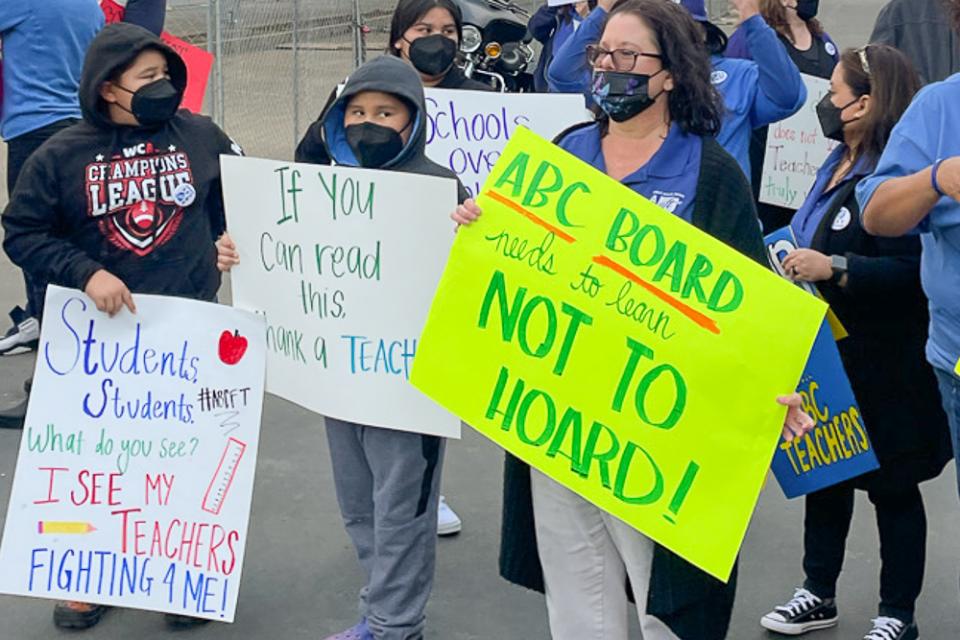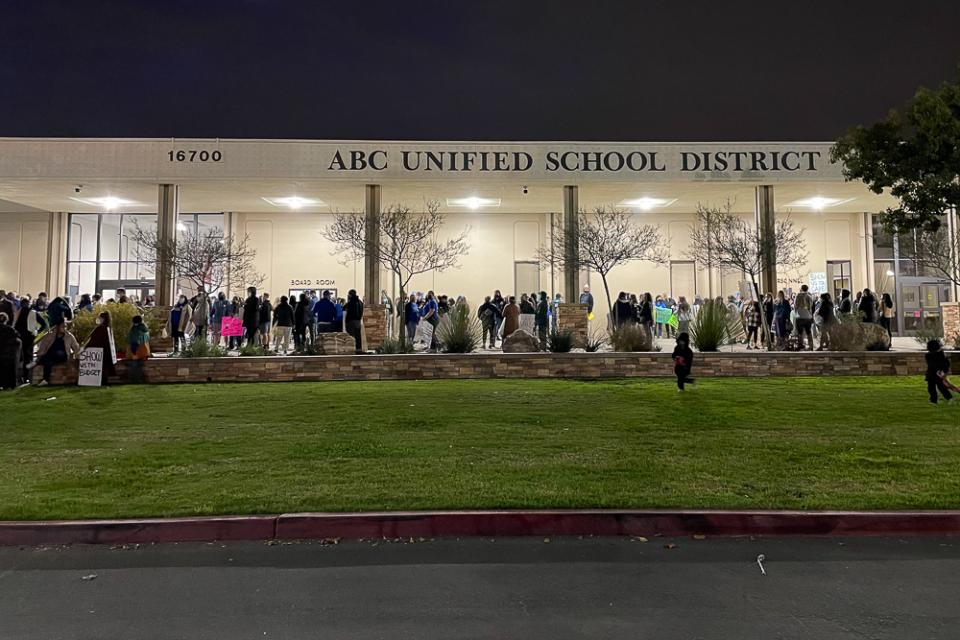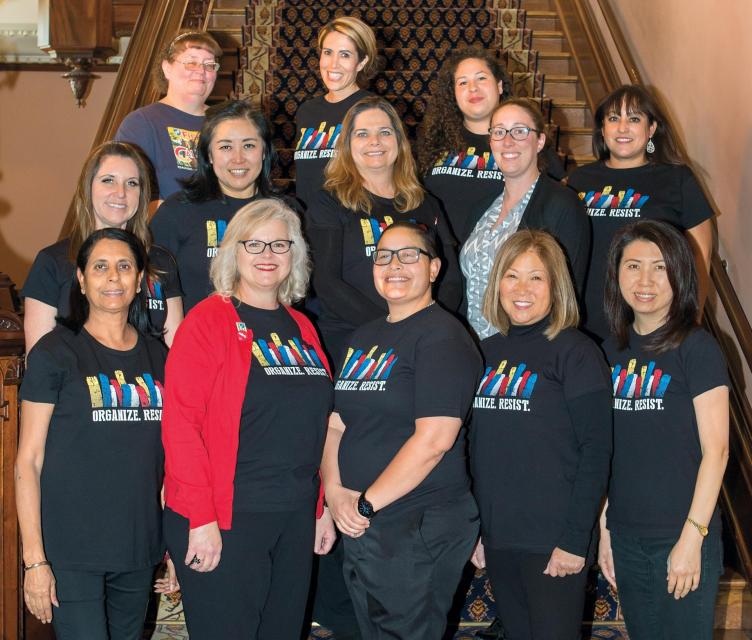Ruben Mancillas, chief negotiator for ABC Federation of Teachers, was pleased about getting a 5% raise for teachers in their latest contract, which he says is the single largest increase since the recession. But it’s not only the raise that pleased him.
Local 2317 was headed towards a strike for the first time in three decades, after uncharacteristically tough negotiations with a new school board in place. Instead of a strike, ABC did a work-to-rule campaign, asking teachers to only do what was specified in their contract.
That, Mancillas thinks, led teachers to reflect on how much they do outside of what they’re paid for, and how much the district depends on that.
“It was an education for everyone,” he said. “It’s enlightening if you really examine what it is we’re asked to do and all the extras and non-contractual work that members are used to taking on to make things work. It’s a reflective moment to look in the mirror and ask, ‘Is it realistic that any system relies so heavily on unpaid labor of their members?’”
Ray Gaer, president of the ABC Federation and CFT Vice President, agrees with Mancillas that this was the first time a lot of the teachers really looked at the contract.
Gaer says many teachers were concerned how the campaign would affect their students, and union leaders told them to keep it as far away from the kids as possible.
“We didn’t want it to last too long, so we hit it hard,” Gaer said. “We announced it on Thursday or Friday and by Sunday, it was on every news channel. We started the campaign on Monday, and we settled in eight days. The district had a board meeting in the middle of that and 400 people showed up.”
Gaer says they were able to get buy-in from teachers partly because of the local’s strong communication with members — they publish a weekly newsletter which hundreds read.
Particularly during COVID, with so much uncertainty and things changing quickly, letting members know what was happening was crucial, says Executive Vice President Tanya Golden.
“Everyone was scrambling. Teachers were isolated. Principals hardly knew anything,” Golden said. “We were the communications loop in the district. We sent out our YOUnion News every Friday, and by Monday, our email boxes would be filled up again. Sometimes we couldn’t wait until Friday, so we’d send out a FAQ. We did weekly chats from March to June. A lot of it was rants, and that’s fine. People needed to let it out.”
The local also did professional trainings as part of its Teacher Leader Program, another thing that let members know the local was there for them, Golden said. Because of that trust, when negotiations were breaking down, they asked the members for help and hundreds turned out to the school board meeting.
The ABC Federation has always had a good relationship with the district, Gaer says. In fact, the exemplary relationship has been widely touted as a national model for labor-management collaboration.
But during this campaign, the local focused on the school board, and in the end, didn’t have to give away anything, he says. They won professional development days, permanent status for career-technical teachers (something not granted under state law), and fought to keep the school start the same for an additional year, as opposed to a week later.
Golden says the school board is newer and more conservative, and Mancillas thinks they were trying to make a statement, and so made negotiations a contentious process.
“That’s not the way we had done business,” Mancillas said. “Even our district partners were frustrated that we had to play more of a game and perform more for the board. It was like if we could have come to an agreement after eight meetings, it seemed like the board would have said to them, ‘You’re not doing your job unless it’s 12 meetings.’”
Standing up to the board and making clear how much the teachers actually do worked, Gaer said. They did a lot of parent outreach as well.
“Our whole mantra was being valued,” he said. “That played really well. It’s the first time our union has had to speak up in a long time and the public reacted to it.”
Erica Cook, a fifth grade teacher and a member of the AFT Teacher Leader program, spoke at the school board meeting.
“My main message was to invest in us if you want quality public education,” she said. “Coming on the heels of COVID, and how we adapted and overcame and rose to the challenge, it was a call for the board to recognize the human capital and the high caliber of our teachers.”
Cook, who has been teaching for seven years says this was the first time she spoke to the school board, or participated in a rally, or was part of a campaign. She says she found it enlightening to put into practice what she’d been learning about in the Teacher Leader program.
“One of the major tenets of the program is to educate teachers about the union,” she said. “It was a perfect time to exercise my voice and advocate for myself as a teacher.”
— By Emily Wilson, CFT Reporter

